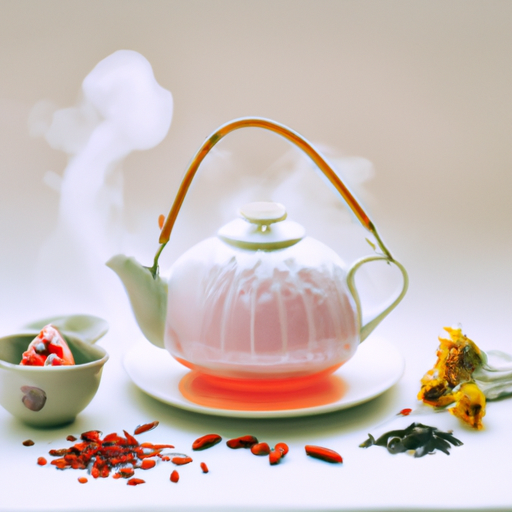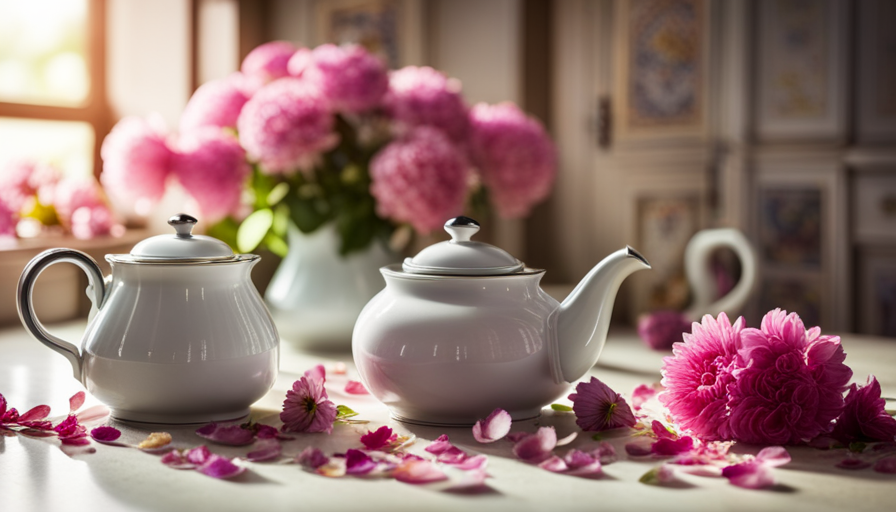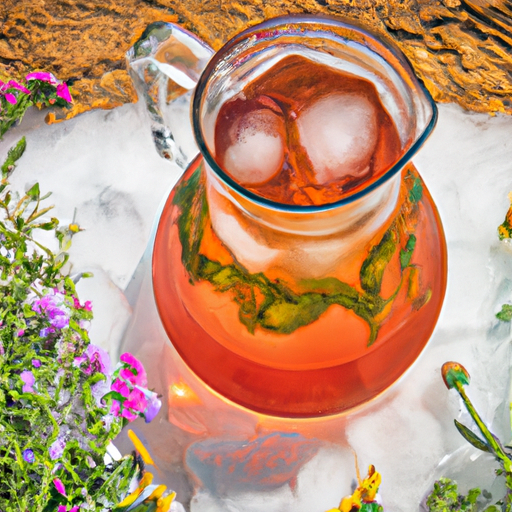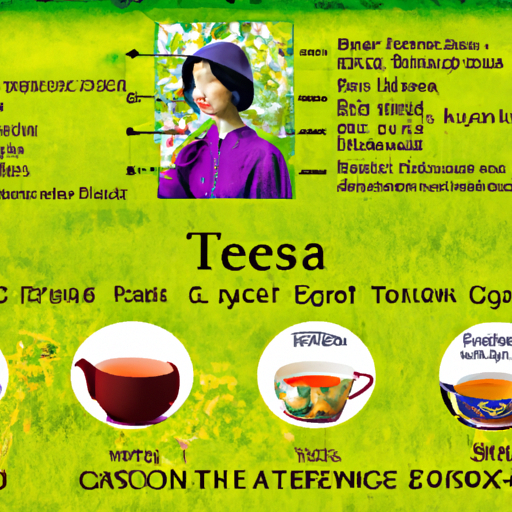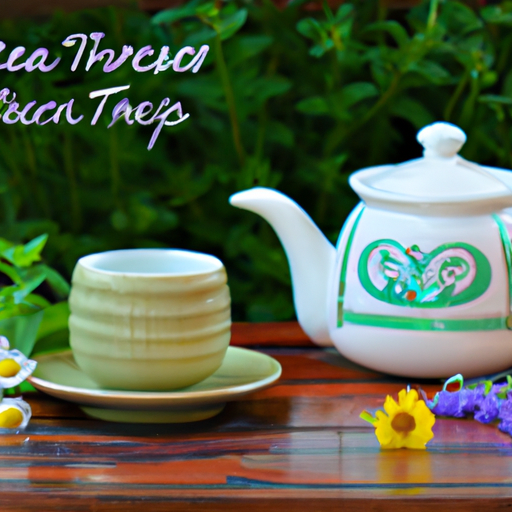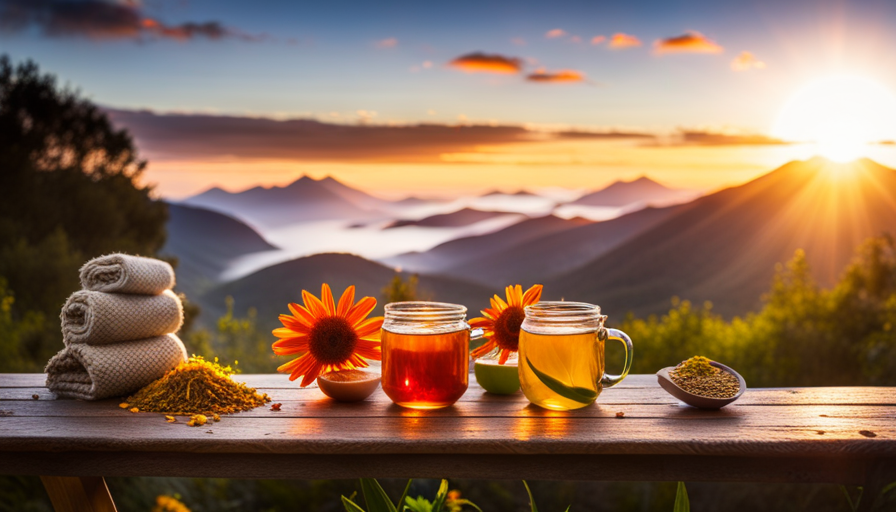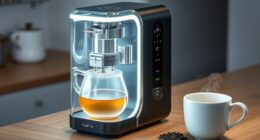As the ancient Chinese saying goes, ‘A cup of tea can revitalize the mind and awaken the spirit.’ And what better way to achieve this rejuvenation than with a hot cup of Chinese herbal tea? In this article, I will walk you through the process of brewing this wonderful drink, imparting my expertise and knowledge to assist you in creating an extraordinary tea experience.
Chinese herbal tea is a treasure trove of flavors and health benefits, and understanding its varieties is the first step towards mastery. From fragrant jasmine to soothing chrysanthemum, each tea leaf offers a unique taste and therapeutic properties.
Once you’ve chosen the perfect variety, it’s time to prepare your tea equipment. From teapots to tea cups, selecting the right tools can elevate your brewing experience.
But the key to a perfect cup of Chinese herbal tea lies in the brewing process itself. From the optimal water temperature to the precise steeping time, I will walk you through the steps to achieve the perfect infusion.
And for those looking to enhance the flavor, I’ll share some expert brewing techniques that will take your tea to the next level.
So, join me on this journey as we explore the art of brewing Chinese herbal tea. Get ready to savor the rich flavors, reap the health benefits, and find tranquility in every sip.
Key Takeaways
- Choosing the right tea leaves involves considering origin and flavor profile.
- Proper water temperature and steeping time are crucial for flavor extraction.
- Gongfu style of brewing emphasizes precision and shorter steeping times.
- Additives like honey, lemon, or ginger can enhance the flavor of herbal tea.
Understanding Chinese Herbal Tea Varieties
Chinese herbal tea varieties can be a fascinating journey to embark on, offering not only a delightful beverage but also a window into the rich cultural heritage of China.
Chinese herbal teas are known for their numerous health benefits, making them a popular choice for those seeking natural remedies. These teas are made from a variety of common ingredients such as chrysanthemum, goji berries, and ginseng, each with its own unique properties.
Chrysanthemum tea, for example, is believed to aid in digestion and promote healthy skin. Goji berry tea is known for its antioxidant properties, while ginseng tea is believed to boost energy and improve cognitive function.
Understanding the different Chinese herbal tea varieties allows you to choose the right tea leaves for your specific needs.
Now, let’s explore how to choose the perfect tea leaves for brewing.
Choosing the Right Tea Leaves
When it comes to selecting the ideal leaves, it’s important to consider their origin and flavor profile. To help you choose the right tea leaves for your Chinese herbal tea, here are some tips:
-
Look for leaves that are grown in reputable tea gardens in China. These leaves are often of higher quality and have a more authentic taste.
-
Consider the flavor profile you prefer. Some leaves have a more earthy and robust flavor, while others are more floral and delicate. Choose based on your personal preference.
-
Pay attention to the brewing instructions. Different leaves may require different brewing techniques and temperatures for the best flavor extraction.
-
Experiment with different varieties. Don’t be afraid to try new leaves and explore different flavors to find your perfect cup of Chinese herbal tea.
Now that you’ve selected the perfect tea leaves, let’s move on to preparing your tea equipment.
Preparing Your Tea Equipment
First, make sure you gather all the necessary equipment to prepare your perfect cup of tea. Having the right tea equipment is essential for a successful brewing process.
Start with a tea kettle or a pot to boil water. A thermometer will help you achieve the proper water temperature, which is crucial for extracting the flavors from the tea leaves. Other vital tools include a tea infuser or strainer to hold the leaves and a teapot or cup to brew the tea. It’s important to choose high-quality equipment that’s easy to clean and maintain.
Now that you have all your tea equipment ready, let’s move on to the next step. We’ll discuss the proper water temperature and steeping time to ensure a flavorful cup of Chinese herbal tea.
Proper Water Temperature and Steeping Time
To ensure a flavorful cup of herbal tea, you’ll want to pay attention to the proper water temperature and steeping time.
Here are three essential factors to consider when it comes to water temperature maintenance and steeping time:
-
Optimal temperature: Different herbal teas require specific water temperatures to extract their flavors and medicinal properties fully. For delicate flowers or leaves, use water that’s around 175°F (80°C), while heartier roots or barks may need boiling water at 212°F (100°C).
-
Steeping duration: Just as temperature matters, so does the steeping time. Steeping herbal tea for too long can result in a bitter taste, while steeping for too short a time may not bring out the tea’s full potential. Follow the recommended steeping times for each type of herbal tea to ensure the perfect balance of flavors.
-
Benefits of proper steeping: Maintaining the recommended water temperature and steeping time allows the herbal tea to release its aromatic compounds, antioxidants, and other beneficial properties. This ensures you receive the maximum health benefits and a delightful sensory experience.
With a clear understanding of water temperature and steeping time, let’s now delve into the various brewing techniques for Chinese herbal tea.
Brewing Techniques
One popular method that has gained attention for its unique approach is the gongfu style of brewing. This method is highly regarded for its precision and attention to detail. To brew Chinese herbal tea using the gongfu style, it’s essential to have a deep understanding of the brewing essentials.
This includes using the right amount of tea leaves, water temperature, and steeping time. The gongfu style emphasizes the use of smaller teapots and shorter steeping times to extract the full flavor and aroma of the tea. Troubleshooting common brewing issues, such as bitter or weak tea, is also important in mastering this technique.
By following these guidelines, you can ensure a delightful and aromatic cup of Chinese herbal tea. Now, let’s explore how to enhance the flavor of your brew even further.
Enhancing the Flavor
When it comes to enhancing the flavor of Chinese herbal tea, I love to experiment with additives like honey, lemon, or ginger. These ingredients not only add a burst of taste but also offer additional health benefits.
Additionally, I enjoy discovering traditional Chinese tea rituals and customs, as they bring a sense of cultural richness and depth to the tea-drinking experience.
Experiment with additives like honey, lemon, or ginger for added taste
Try adding a squeeze of lemon or a dollop of honey to your Chinese herbal tea for an extra burst of flavor that’ll make your taste buds dance with delight! Experimenting with different herbal tea blends is a great way to discover new and exciting flavors.
Chinese herbal tea is not only delicious but also offers numerous health benefits. By adding honey, you can enhance the sweetness of the tea and also benefit from its antibacterial and antioxidant properties.
Lemon, on the other hand, adds a tangy and refreshing twist to the tea while providing a good source of vitamin C. Another option is ginger, which adds a spicy kick and aids in digestion. Don’t be afraid to get creative and combine different additives to find your perfect blend.
Now, let’s delve into the fascinating world of traditional Chinese tea rituals and customs.
Discover traditional Chinese tea rituals and customs
Delve into the captivating world of traditional Chinese tea rituals and customs to uncover the rich cultural heritage behind the art of brewing and enjoying this beloved beverage. Traditional tea ceremonies in China are steeped in history and symbolism, with each step carefully choreographed. From the selection of the tea leaves to the precise temperature of the water, every aspect of the ceremony is thoughtfully considered.
These rituals not only enhance the enjoyment of the tea, but also serve as a way to connect with nature, promote mindfulness, and foster a sense of community. Additionally, Chinese herbal tea is known for its numerous health benefits, such as improving digestion, boosting the immune system, and promoting relaxation. By participating in these traditional tea ceremonies, one can experience the holistic benefits of herbal tea beyond just its taste and aroma.
Now, let’s explore how to store and enjoy your tea.
Storing and Enjoying Your Tea
To fully savor the rich flavors of the Chinese herbal tea, it’s essential to store it properly and take pleasure in every sip. Proper tea storage is crucial to maintain its freshness and preserve its health benefits.
Here are three key tips to ensure you enjoy your tea to the fullest:
-
Keep it airtight: Store your tea in airtight containers to prevent exposure to air, moisture, and light. This’ll help retain its aroma and flavor for a longer period.
-
Store in a cool, dark place: Avoid storing your tea near strong odors or in direct sunlight. Instead, find a cool, dark spot in your kitchen or pantry to maintain its quality.
-
Use within the recommended timeframe: Chinese herbal tea is best consumed within a certain timeframe to fully experience its health benefits. Be sure to check the recommended consumption period and enjoy it while it’s at its freshest.
By following these simple guidelines, you can ensure that your Chinese herbal tea stays fresh, flavorful, and packed with its incredible health benefits.
Frequently Asked Questions
Are there any potential side effects or health risks associated with drinking Chinese herbal tea?
Potential side effects and health risks associated with drinking Chinese herbal tea are rare but can include allergic reactions or interactions with medications. Precautions include consulting a healthcare professional and avoiding excessive consumption.
Can I mix different types of Chinese herbal tea together to create my own unique blend?
Yes, you can mix different types of herbal teas together to create your own unique blend. Doing so allows you to customize the flavors and benefits to suit your preferences and health needs.
How long does the brewed Chinese herbal tea last before it goes bad?
The shelf life of brewed Chinese herbal tea depends on storage methods. It typically lasts for 2-3 days in the refrigerator, but its flavors may deteriorate over time. Properly storing it in an airtight container can help maintain its freshness.
Can I reuse the tea leaves for multiple infusions, and if so, how many times can I do so?
Yes, you can definitely reuse the tea leaves for multiple infusions. In fact, it is common practice in Chinese tea culture. You can typically get 2-3 good infusions, and each infusion still retains the health benefits of the tea.
Are there any specific health benefits or medicinal properties associated with different Chinese herbal tea varieties?
There are numerous specific health benefits and medicinal properties associated with different varieties of Chinese herbal tea. These teas can aid digestion, improve sleep, boost immunity, relieve stress, and alleviate various health conditions.
Conclusion
In conclusion, brewing Chinese herbal tea is a delightful and intricate process that requires attention to detail and an understanding of the tea varieties. By choosing the right tea leaves, preparing the equipment, and mastering the proper water temperature and steeping time, you can unlock the full flavor and benefits of these herbal teas.
Remember to experiment with brewing techniques and enhance the flavor to suit your personal taste. With the right knowledge and care, you can create a truly exquisite tea experience that will transport you to the enchanting world of Chinese herbal tea.
So, go ahead and indulge in the rich culture and flavors of this ancient beverage, and savor every sip.

